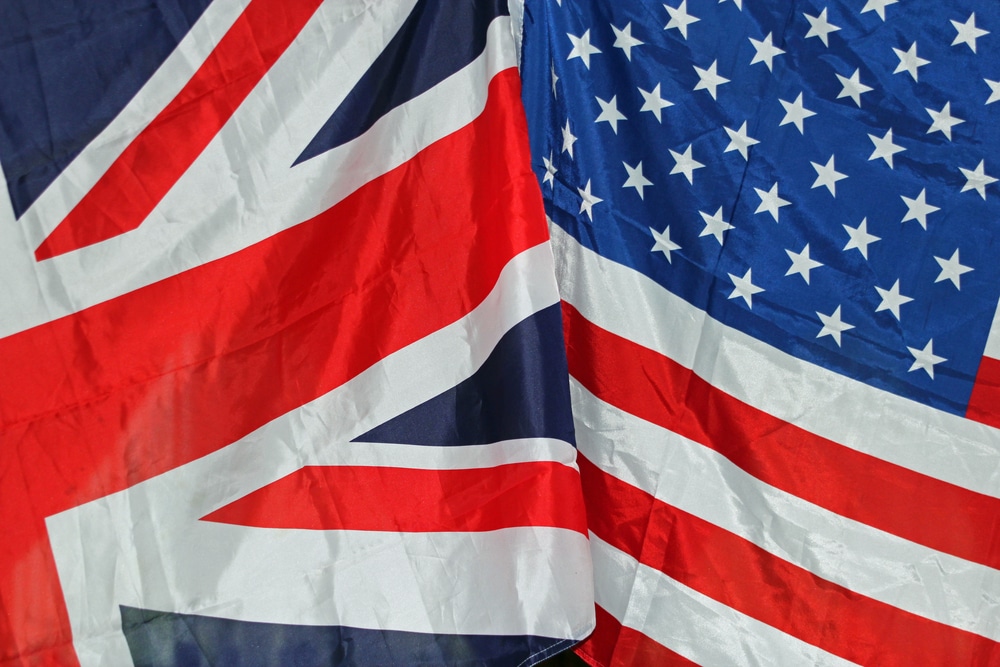
How Many Countries Speak English? We Count 96! (2024)
English is a truly global language. Learning it will expand your personal and professional connections across the world.
But how many countries actually speak English?
In this post, we will list 96 countries where English is spoken to varying degrees. You will learn which countries will totally immerse you in the English language, and other countries where English can help you communicate as a traveler or businessperson but is not the primary language.
Contents
- English: The Most Widely Spoken Language
- 96 English-speaking Countries
- How Did English Spread Throughout the World?
- And One More Thing...
Download: This blog post is available as a convenient and portable PDF that you can take anywhere. Click here to get a copy. (Download)
English: The Most Widely Spoken Language
English is spoken as an official language in around 55 countries and 20 non-sovereign territories. However, there are at least 20 more countries where English is commonly spoken or even the native language, even though it’s not legally an official language.
Having English as an official language means it is permitted for use on official government documents and in courts of law.
Still, in some countries where English is an official language—such as Cameroon—not everyone speaks the language in daily life. In many cases, it’s used primarily as a lingua franca in business.
96 English-speaking Countries
At least 1.5 billion people speak English, and they can be found all over the world. To make things a little easier to follow, we’ve broken down the 96 total English-speaking countries by region:
Native English-speaking Countries

One term you’ll often hear is “native speaker.” This means that English is someone’s first language or mother tongue.
First off, there are six countries where the native language is English. In these countries, English is the main language used by the population, and most people there have spoken it since birth:
| Australia | Ireland | United Kingdom |
| Canada | New Zealand | United States |
Surprisingly, some of these countries—such as the United States and Australia—don’t have English as an official language.
English-speaking Countries in the Americas

The United States does not have an official language, but the majority of the population speaks English and it is the language used for education and government affairs.
Canada is the other main English-speaking country in the Americas, though French is the country’s second official language and much of the population speaks both.
There are a handful of countries in Central and South America where English is an official language. Many countries in the Caribbean speak English, as well.
Here are the countries and territories that speak English as an official or predominant language:
| Anguilla | Cayman Islands | Saint Kitts and Nevis |
| Antigua and Barbuda | Dominica | Saint Lucia |
| Bahamas | Grenada | Saint Vincent and the Grenadines |
| Barbados | Guyana | Trinidad and Tobago |
| Belize | Jamaica | The United States |
| Bermuda | Montserrat | The Virgin Islands |
| Canada | Puerto Rico |
It is important to note that although English is the official language, many of the people who live in these countries do not speak English, and may communicate mostly in Spanish, French, French Creole or other languages during their daily lives.
English-speaking Countries in Europe

Did you know that 90% of European schoolchildren study English at some point during their education? However, that does not mean they speak it fluently as adults.
There are several countries and territories in Europe that primarily speak English and/or have English as an official language. They are:
| Austria | Gibraltar | Malta |
| Belgium | Guernsey | Menorca |
| Cyprus | Ireland | Northern Ireland |
| Denmark | Isle of Man, The | Poland |
| England | Jersey | Scotland |
| Finland | Luxembourg | Wales |
English-speaking Countries in Africa

Most African countries have many different official languages. South Africa, for example, has 11 different official languages, and even more languages and dialects are spoken in the country.
Though English is listed as an official language in these countries, many people may not speak English.
In Botswana, English is the official business language, but not spoken frequently. Many people in Egypt and Ethiopia speak English as well, though it is not an official language.
Countries where English is an official language and spoken by a majority of the population are:
| Ghana | Nigeria | Uganda |
| Liberia | Sierra Leone | Zimbabwe |
English is also listed as an official language, but not used as a primary language, in the following countries:
| Botswana | Malawi | South Africa |
| Cameroon | Mauritius | Sudan |
| Eritrea | Namibia | Swaziland |
| Gambia, The | Rwanda | Tanzania |
| Kenya | Saint Helena | Zambia |
| Lesotho | Seychelles |
English-speaking Countries in Oceania

Australia, like the U.S. and U.K., does not list English as an official language, though it is the primary language and the de facto official language. Other countries in Oceania that speak English are American Samoa and Cook Islands. English is one of the official languages in New Zealand.
English is listed as the official language of several other countries, though it is not the primary spoken language.
Countries with English as a primary or official language in Oceania are:
| American Samoa | Micronesia | Pitcairn |
| Australia | Nauru | Samoa |
| Cook Islands | New Zealand | Solomon Islands |
| Fiji | Niue | Tonga |
| Guam | Northern Mariana Islands | Tuvalu |
| Kiribati | Palau | Vanuatu |
| Marshall Islands | Papua New Guinea |
English-speaking Countries in Asia and the Middle East

In Asia and the Middle East, there are some countries where English is an official or de facto official language, even if it is not necessarily a primary language. They are:
| Bangladesh | Jordan | Philippines |
| Bhutan | Kuwait | Qatar |
| Brunei | Malaysia | Singapore |
| Cambodia | Maldives | Sri Lanka |
| India | Myanmar | United Arab Emirates |
| Israel | Pakistan |
In India, Pakistan and the Philippines, English is an official language, though used mainly in government and education. In Singapore, English is an official language and a widely spoken language.
With English speakers in all these countries around the world, it’s definitely a widespread language—and more and more people are learning it. Wherever you are in the world, you can practice your own English with a language learning program like FluentU.
FluentU takes authentic videos—like music videos, movie trailers, news and inspiring talks—and turns them into personalized language learning lessons.
You can try FluentU for free for 2 weeks. Check out the website or download the iOS app or Android app.
P.S. Click here to take advantage of our current sale! (Expires at the end of this month.)

How Did English Spread Throughout the World?
The arrival of the Anglo-Saxons in Britain is usually considered the beginning of the English language’s spread.
The language changed when Norse invaders brought several new words, which were added into daily speech. English began to borrow some words from French and Latin.
During the Medieval period, English started to become more standardized. As London grew, other dialects of English began to fade or merge into what we think of as English today.
The British Empire is typically considered the next major phase of English’s spread. As England invaded regions around the world and established colonies, it brought English with it.
Today, English is the most spoken language in the world, including native and non-native speakers. Over one billion people across the world speak English, though only around 373 million speak it as their first language.
It is one of the most commonly studied languages and is sometimes called a global language because it is used for international organizations.
Pilots are required to communicate in English for international flights, and organizations such as the United Nations and the European Union list English as an official working language. This is partly because so many countries speak English or recognize it as an official language.
Hopefully this list will help motivate you to study, knowing the language can open doors to travel to many, many different countries around the world. There are a lot of people learning to speak English, so you are in good company as you practice speaking and reading English and get ready to add it to your daily life.
Download: This blog post is available as a convenient and portable PDF that you can take anywhere. Click here to get a copy. (Download)
And One More Thing...
If you like learning English through movies and online media, you should also check out FluentU. FluentU lets you learn English from popular talk shows, catchy music videos and funny commercials, as you can see here:
The FluentU app and website makes it really easy to watch English videos. There are captions that are interactive. That means you can tap on any word to see an image, definition, and useful examples.
For example, when you tap on the word "searching," you see this:
Learn all the vocabulary in any video with quizzes. Swipe left or right to see more examples for the word you’re learning.

FluentU helps you learn fast with useful questions and multiple examples. Learn more.
The best part? FluentU remembers the vocabulary that you’re learning. It gives you extra practice with difficult words—and reminds you when it’s time to review what you’ve learned. You have a truly personalized experience.
Start using the FluentU website on your computer or tablet or, better yet, download the FluentU app from the iTunes or Google Play store. Click here to take advantage of our current sale! (Expires at the end of this month.)










